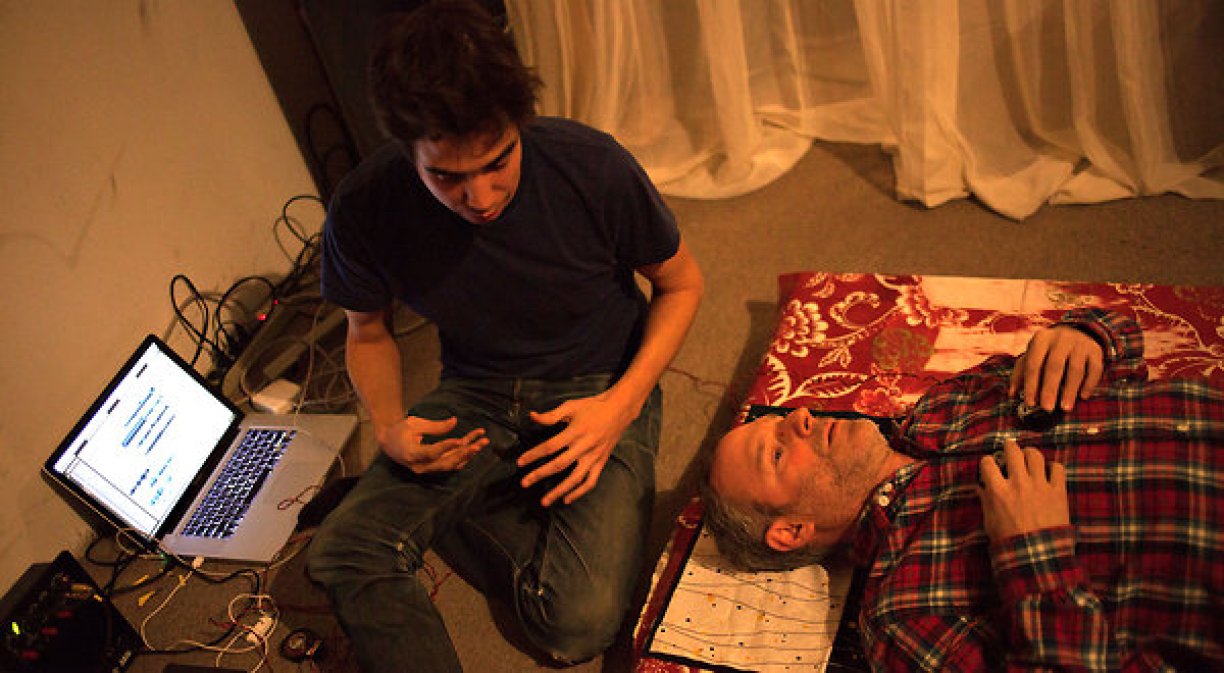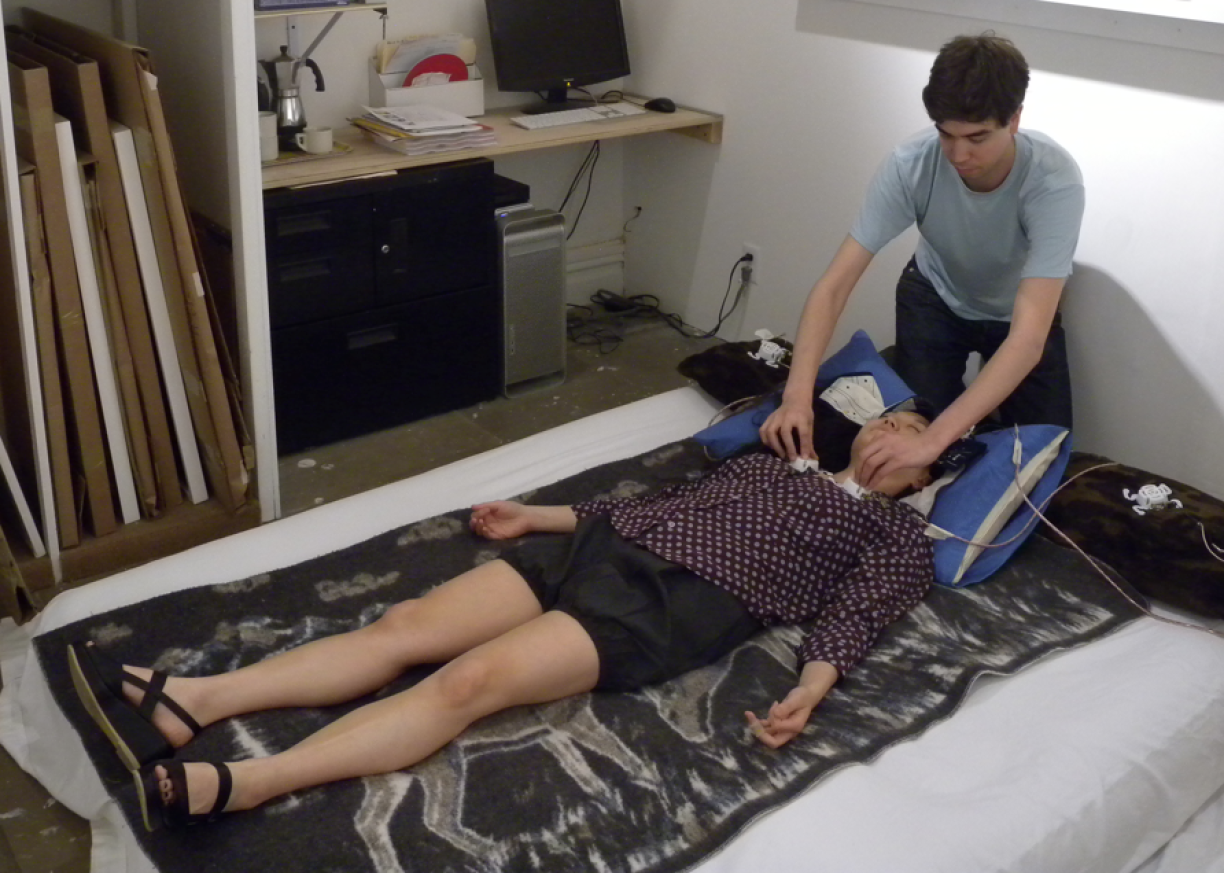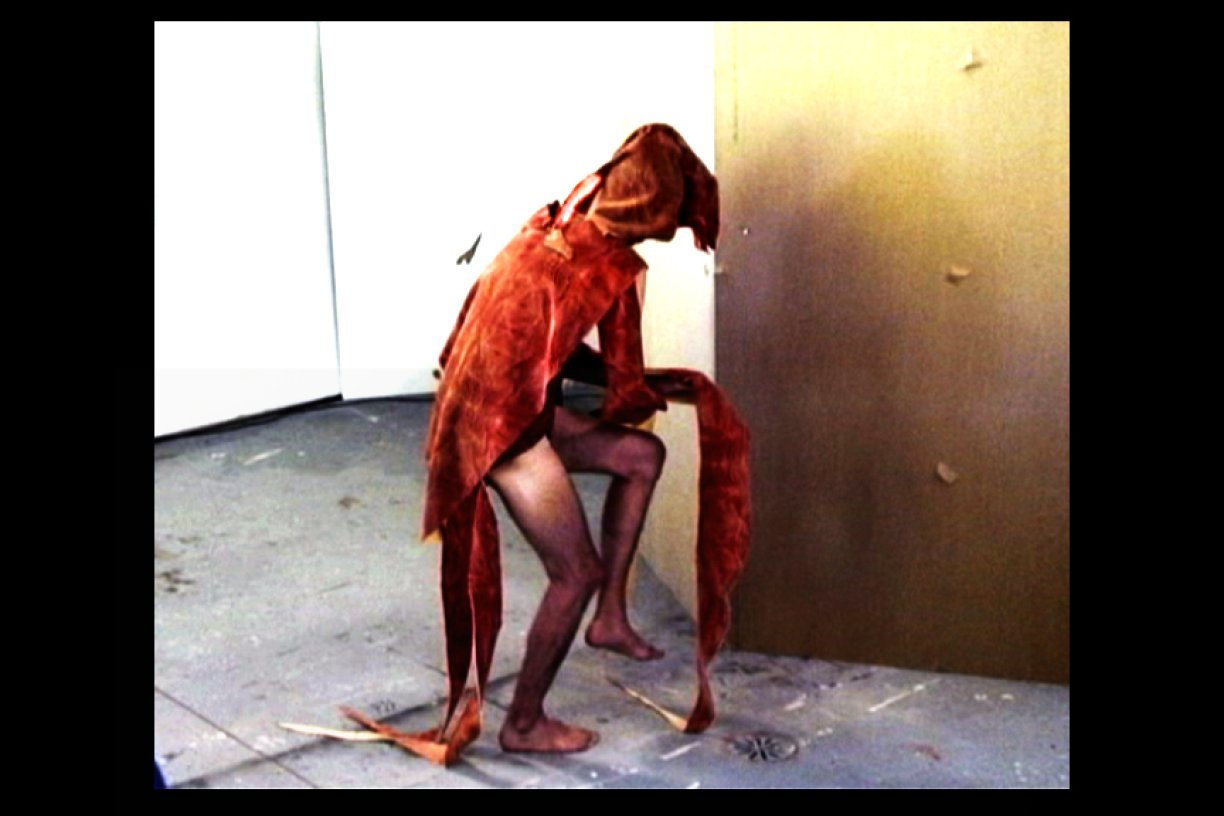I Become the Body Electric:
Sergei Tcherepnin’s Music for One at Issue Project Room
by Corinna da Fonseca-Wollheim
in The New York Times November 28, 2012
On Tuesday evening Sergei Tcherepnin performed a new composition at Issue Project Room in Downtown Brooklyn, where he is currently an artist in residence. You probably expect me to tell you something about this performance, but I’m afraid it’s not that simple.
If pushed, I might say that it was deeply felt. “Oh, yes?” you might ask. “How deeply?” And you would be perfectly within your rights to insist on specifics, but then I’d have to talk about my coccyx and my thoracic diaphragm and that pubic symphysis I had such trouble with during my last pregnancy, and frankly, I’m not sure any of us wants to go there.
There was also the matter of the vodka, but I’m getting ahead of myself. I should explain that I was not only the sole audience member at the performance, I was also the instrument and the acoustic chamber: hence the difficulty of assuming critical distance. The piece was a six-channel electronic composition, which Mr. Tcherepnin played through my body by means of electric impulses sent through a blanket-covered platform I lay on, as well as through four electrodes. Two of these I held against my chest and abdomen while he moved the other two around my head.
I was in good hands: Mr. Tcherepnin is part of an unbroken line of composers reaching back four generations to his great-grandfather Nikolai Tcherepnin (1873-1945), who studied with Rimsky-Korsakov and conducted Diaghilev’s Ballets Russes. That may not in itself explain the preoccupation of the young Mr. Tcherepnin, who was born in 1981, with the materiality of sound and its interaction with human physiology. But it pleased me to imagine that some of the current that was setting my bones abuzz had its source in 19th-century St. Petersburg, where Rimsky-Korsakov and Scriabin were dreaming of a technology that could express music across the full spectrum of synesthesia.
Mr. Tcherepnin’s own synesthetic gesture was to offer his subjects a mandatory preperformance cocktail made chiefly of vodka and lime juice. The bright citrus smell filled the air of an antechamber, where three of his sound installations emitted squeaks, pings and bird song.
But the main attraction — which was booked in 15-minute private appointments — was the “massage,” performed in a back room behind makeshift curtains. It took a few minutes for me to experience the sensations in my body as music; the initial effect was not unlike that created by a mouthful of dentist’s drills. But after a while distinct pitches formed throughout my body, organized themselves into patterns and formed relationships with one another.
One harmonic modulation announced itself as a tickling sensation in my throat. Like the sympathetic strings on a sitar, which resonate without being played, my feet started to tingle even though they hung off the edge of the platform.
It was hard for me to tell which sounds, if any, were audible in the room, outside the confines of my body. Quite possibly I was experiencing, and performing, an extreme form of chamber music. It must vary from person to person, and with each performance created one on one I have nothing to compare it to, but I thought I sounded pretty good.
http://www.nytimes.com/2012/11/29/arts/music/sergei-tcherepnins-music-f…



